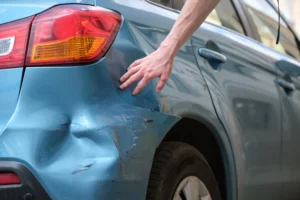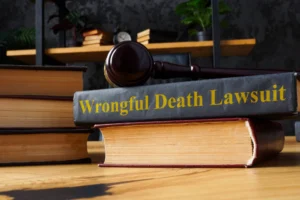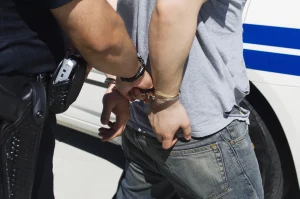If you’re pulled over in San Antonio on suspicion of driving while intoxicated (DWI) and you refuse a breathalyzer test, you could be facing serious legal consequences, including an automatic license suspension, even if you haven’t had a drop to drink. While it may seem like you’re protecting yourself by refusing a test, it has its consequences — many of which are pretty serious.
At Guzman Law Firm, we understand how intimidating and confusing being pulled over for DWI can be; it’s tough to know when you cross the line between protecting yourself and endangering your future. After a DWI stop, no matter how it went down, you need a strong legal defense if you want to protect your future. If you’ve refused a breathalyzer or are facing DWI charges, call Guzman Law Firm at (956) 516-7198 today to start building your defense.
What happens in Texas if you refuse a breathalyzer?
Refusing a breathalyzer test in Texas doesn’t mean you’re in the clear. In fact, under Texas Transportation Code § 724.011, all drivers implicitly consent to chemical testing (breath, blood, or urine) when they receive a driver’s license. This is known as implied consent, and refusing to comply can have swift and harsh repercussions, whether you’re convicted of DWI or not.
Here’s what happens when you say “no” to a breath test:
- Immediate license suspension by the Texas Department of Public Safety (DPS)
- An arrest for suspicion of DWI
- Potential blood draw with a warrant, especially during a “no refusal” weekend
- Higher insurance premiums
- Difficulty reinstating your license without legal help
Know your rights
Whether you blew, bled, or refused altogether, remember this: you still have rights. But if you don’t act quickly, you risk losing your license, your freedom, and your reputation.
Here’s what to do if you’re pulled over:
- Remain calm and polite. Belligerence will only make matters worse.
- You have the right to remain silent. Use it. Don’t volunteer information.
- Refusing field sobriety tests is allowed, though doing so can raise suspicion.
- You must comply with chemical testing, but you can still contest results later with a lawyer’s help.
At Guzman Law Firm, we defend San Antonio drivers facing DWI charges every day. We know the local courts, the prosecutors, and the tactics used to win these cases. We’re prepared to fight for you!
Do they take your license if you refuse a breathalyzer?
Yes. Upon refusal, the officer will confiscate your driver’s license and issue a Notice of Suspension along with a temporary driving permit valid for 40 days. If you do nothing, your license will be automatically suspended when those 40 days are up.
Getting your license back in this scenario requires you to schedule an Administrative License Revocation hearing with the Texas Department of Public Safety within 15 days of receiving your notice of suspension.
How long is your license suspended for refusing a breathalyzer in Texas?
For a first-time refusal, your license will be suspended for 180 days. If you have previously refused or been convicted of DWI, that suspension can extend to two years. These penalties are administrative and separate from any criminal charges.
Even if you’re later found not guilty of DWI, the license suspension can still stick unless you act quickly and strategically.
What is the “no refusal” policy in Texas?
Texas has a “no refusal” policy that allows law enforcement to expedite warrants for blood draws if a driver refuses a breathalyzer. Contrary to what many believe, “no refusal” doesn’t mean you can’t say no; it means you can’t say no without consequences.
During “no refusal” periods (often weekends, holidays, or special enforcement campaigns), officers can obtain an on-call judge’s warrant for a blood draw almost instantly if you refuse testing. This makes refusal futile and potentially even more damaging.
Is it better or worse to refuse a breathalyzer?
Refusing a breathalyzer often makes things worse. Not only do you face administrative penalties, but the refusal itself isn’t going to look good to a potential jury.
The popular advice, “do not blow” doesn’t often hold up in practice. It might save you from giving law enforcement one piece of evidence, but it invites a whole set of different problems like immediate license suspension and the likelihood of a forced blood test immediately afterwards.
Is it better to do a breathalyzer or give blood?
Each option comes with pros and cons, as well as numerous flaws, which we’ll get into later:
- Breath tests are faster and less invasive but may be less accurate due to improper calibration or environmental factors.
- Blood tests are more precise but require a warrant and medical personnel, giving you time for your BAC to drop.
However, in a no-refusal setting, you might not have a choice. A breath test may be your least damaging option, especially if you haven’t had much to drink and want to avoid a long legal battle over license suspension and refusal evidence.
The flaws in breath and blood tests
Many people assume that DWI tests are scientifically airtight. The truth is far messier. Whether it’s a breathalyzer, blood draw, or roadside sobriety test, flaws are common; these flaws can be used in your defense.
| Breathalyzer limitations | Blood test issues |
| Calibration errors: Devices must be properly maintained and regularly calibrated. Failure to do so invalidates results. Residual alcohol: Mouth alcohol from burping, mouthwash, or recent drinks can skew results. Medical conditions: GERD and other health issues can cause false positives. | Time delay: BAC levels can rise or fall significantly between the time of driving and the actual blood draw. Chain of custody errors: Mishandled samples can become inadmissible. Improper storage: If samples aren’t stored correctly, fermentation can artificially inflate BAC. |
A DWI attorney can scrutinize each element of your arrest and build a defense that exposes the flaws in these so-called “scientific” tests.
How a DWI attorney can help you keep your license
Refusing a breathalyzer doesn’t just put your driving privileges at risk; it creates a time-sensitive legal problem. Once you’re issued a Notice of Suspension, you have 15 days to request an Administrative License Revocation (ALR) hearing with the Texas DPS.
At this hearing, you have the opportunity to contest the license suspension. But missing the 15-day deadline forfeits your right to appeal, and your suspension goes into effect.
Attorney Javier Guzman can help you by:
- Filing the ALR hearing request promptly
- Challenging the legality of the traffic stop
- Questioning the officer’s observations
- Disputing the refusal allegation or procedural errors
- Cross-examining officers on their training and the calibration of testing equipment
Winning an ALR hearing could prevent your license from being suspended altogether. Even if you don’t win, a skilled criminal defense attorney can help you secure an occupational license that lets you drive to work, school, and essential appointments.
Pulled over for DWI? Take a breath, then call Guzman Law Firm.
While the option to refuse a breathalyzer might feel like your best option in the moment, the consequences can be severe and long-lasting. License suspension, criminal charges, and evidence stacking up against you are just the beginning.
If you’re facing DWI charges in San Antonio or Laredo or refused a chemical test, time is not on your side. You only have 15 days to challenge your license suspension, and building your defense starts the moment you call.
Don’t face this fight alone. Call Guzman Law Firm today at (956) 516-7198, and let us help you protect your rights, your license, and your future.
More Helpful Articles by Guzman Law Firm:
- What Is the Punishment for Firearm Trafficking in Texas?
- DWI Checkpoints in San Antonio: Are They Legal?
- First Time Gun Charges in Texas: What to Expect
- What Happens if Your CDL Is Suspended for a DWI in Texas?
- The Difference Between State and Federal Drug Charges in Texas





